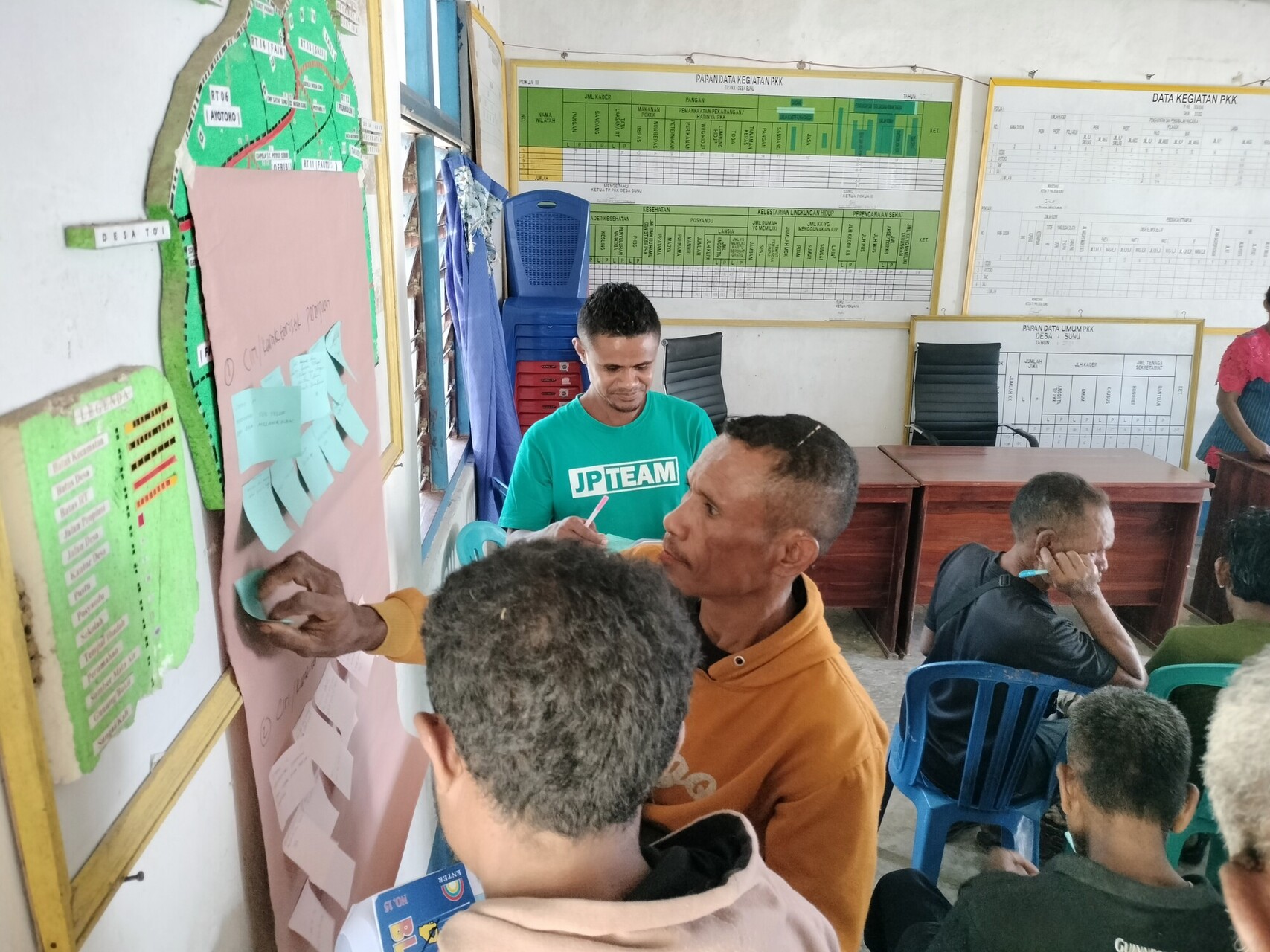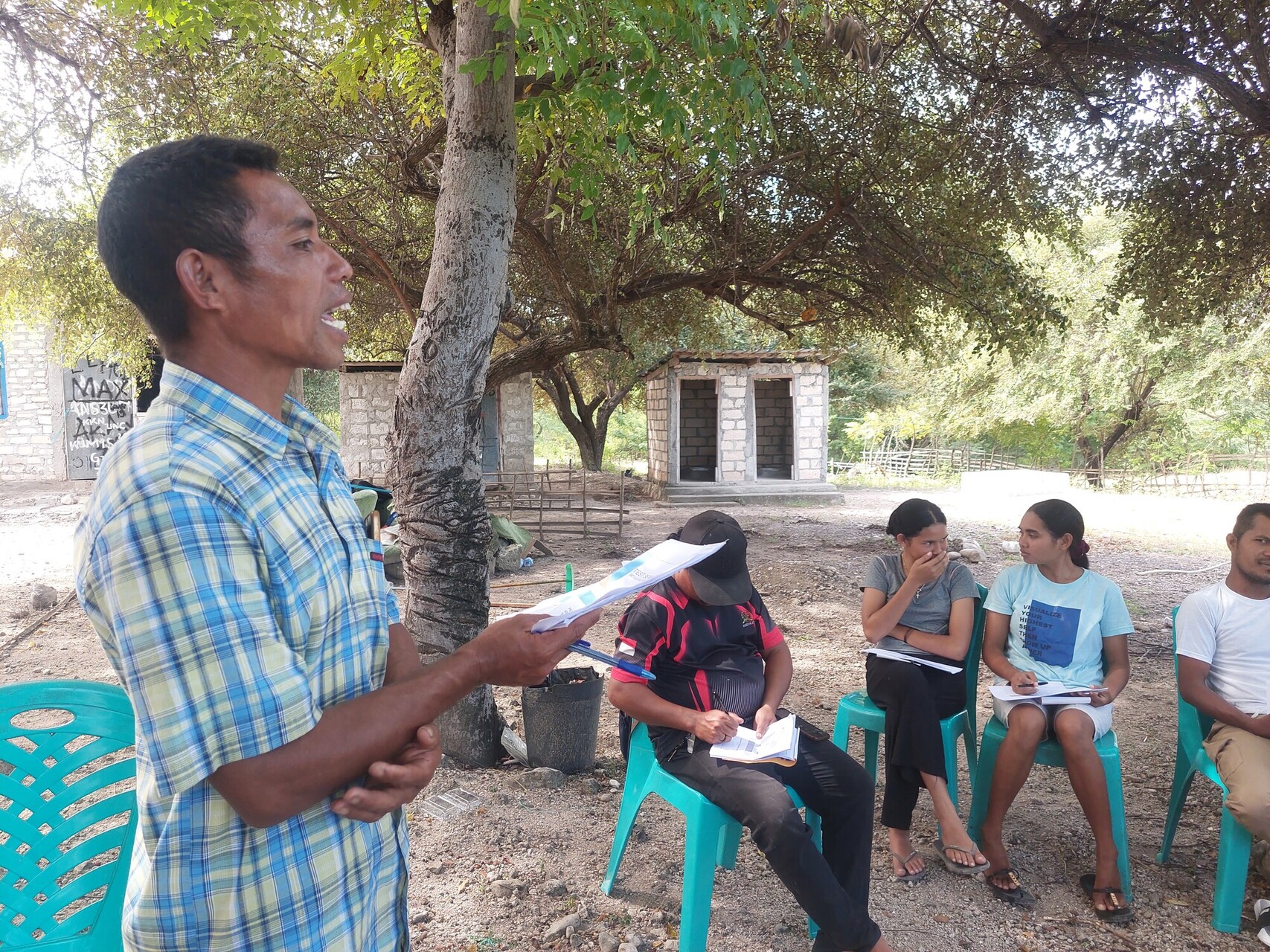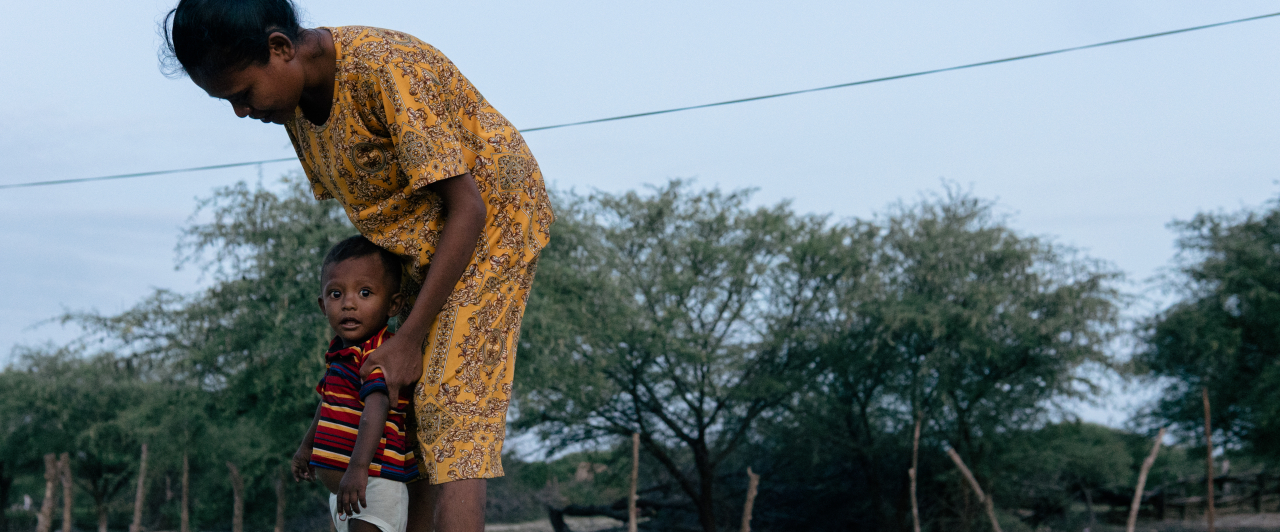In a village in East Nusa Tenggara, Indonesia, 27-year-old Mama Odiana Nuban was surprised to learn she was pregnant again just five months after having her first baby. The pregnancy was unplanned because she had to wait for her husband’s approval to use contraception. By the time the decision was made, it was too late.
Pictured above: Mama Odiana with her child in front of her house. © Martinus Frederick Radja Dangawila for Ipas Indonesia
Mama Odiana’s story is not unique. In many parts of eastern Indonesia, deeply rooted patriarchal norms mean that women must seek permission from their husband, and sometimes even their in-laws, before accessing reproductive health services. The same pattern was also found in Ipas Indonesia’s baseline assessment conducted in 2023.
This cultural dynamic contributes significantly to Indonesia’s high rate of unmet need for family planning. Based on the data from the National Family Planning Coordinating Board, unmet family planning in 2023 stands at 11,5%. Meanwhile, the unmet need for family planning in East Nusa Tenggara province stands at 25.3%.
“I wanted to use contraception,” Mama Odiana shared, “but I waited [for my husband’s decision]. I thought I could start when my baby turned six months old. But I was already pregnant again when he was five months old.”
To address this challenge, Ipas Indonesia, with support from Takeda Pharmaceutical Company Limited’s Global CSR program, launched the TAKENUSA Project (Joint Commitment for Women of Nusa Tenggara) in 2023. The initiative focuses on expanding the access of reproductive health, such as family planning in the rural areas of three districts in East Nusa Tenggara Province.
Through a series of community dialogues led by trained Community Health Workers (CHWs), TAKENUSA facilitate a men’s group where they learn about family planning, ask questions, and reflect on their roles in supporting their partners’ health and choices. Since its launch, the project has facilitated discussions in 14 villages, reaching over 1375 men. These sessions included local leaders, religious figures, and husbands.

Pictured above: A group of community members discuss contraception in the community dialogues. © Yayasan CIS Timor Indonesia for Ipas Indonesia
Yane Beis, a CHW involved in the project, explained: “At first, many men resisted. They said we shouldn’t interfere in their households. But we kept talking to them by reminding them that it’s the women who carry the pregnancy, who feel the pain of childbirth. Eventually, they listened. Many even began supporting their wives in using contraception.”
One of those men was Papa Noh Boimau, Mama Odiana’s husband. After attending a community session, he learned about different contraceptive options and changed his perspective. Papa Noah heard about family planning at the Posyandu (community health post). After chatting with his wife and learning more about family planning, Papa Noh decided to support her in using contraception to avoid unplanned pregnancies.
After attending a community session, Papa Noh found himself reflecting deeply on the importance of shared responsibility in building a healthy family. The session helped him understand that reproductive health is not just about medicine; it is also about listening, respecting each other, and making decisions together.

Pictured above: A community health worker shares reproductive health information in the community dialogue. © Yayasan CIS Timor Indonesia for Ipas Indonesia
The project also works with midwives to deliver high-quality family planning services. Ipas Indonesia trained 90 midwives from December 2023 to May 2024. “We were trained [in] the basics of counseling, such as how to counsel women until they can make their own decisions. Once they’ve decided, then we will provide the service,” midwife Tecla said.
Because of the strong patriarchal culture, she engages husbands for counseling. This approach ensures that both partners receive accurate information and can make informed decisions together. “In our culture, men are often the decisionmakers,” Tecla explained. “That’s why it’s important to involve them in counseling, so women do not have to wait for permission to protect their health.”


